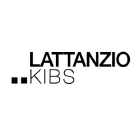WORKING WITH DG ECHO SANCTIONS | 2021 - 2027
COUNTER-TERRORISM MEASURES
Counter-Terrorism (CT) measures are measures taken at national, international or EU level aimed at preventing and tackling the terrorist threat. The EU implements CT measures adopted at UN level, and has adopted CT measures of its own to support the fight against terrorism.
Counter-terrorism measures and sanctions are sometimes mistakenly considered one and the same thing, due to the fact that certain sanctions regimes are targeting terrorist groups and organisations and thus contribute to the overall fight against terrorism financing. The latter are referred to here as CT sanctions. These existing CT sanctions consist of a travel ban on natural persons and an assets freeze, and prohibition from making funds and economic resources available to natural persons and entities. As such, CT sanctions are a powerful precautionary instrument to deny terrorists resources and mobility.
Even though there is an overlap between CT measures and sanctions when it comes to CT sanctions, there is a difference between the two. In fact, many sanctions regimes are not terrorism-related, and likewise there are CT measures that are not sanctions regimes. The two are distinct.
Over the years, responding to different threats, there has been a significant increase in CT measures, such as laws criminalizing any form of support to groups or individuals designated as “terrorists” or counter-terrorism clauses in funding agreements.
Directive (EU) 2017/541 on combating terrorism adopted on 15 March 2017 includes a humanitarian exemption in its recitals. Recital 38 foresees that "the provision of humanitarian activities by impartial humanitarian organisations recognised by international law, including international humanitarian law, do not fall within the scope of this Directive, while taking into account the case-law of the Court of Justice of the European Union."
The Commission conducted a Supranational Risk Assessment (SNRA) exercise in 2017 and 2019. Stemming from a legal requirement under the 4th Anti-Money Laundering Directive, the report covers the assessment of the risk of money laundering and terrorist financing affecting the internal market and relating to cross-border activities. The 2019 assessment looked among others on the vulnerability of certain humanitarian non-profit organisations (NPO) to risks of terrorism financing. The 2019 SNRA highlighted that the risk of exposure of NPOs is impacted by the varying nature of their activities, the applicable legal framework and the national practices that provide controls and checks. The assessment of the NPO partners of the EU (under the specific category of "NPOs receiving institutional funding, among others by the EU or Member States") was overall positive, as the risk level attached to their activities was the lowest.
The exercise is to be repeated every two years. A new assessment is to be published in 2021.




